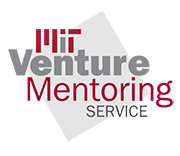What is MIT VMS?
Reporting to the Provost, VMS is a free and confidential service exclusively for the MIT community. VMS harnesses the knowledge and experience of volunteer alumni and other business leaders to help prospective MIT-affiliated entrepreneurs learn what they need to know to begin and sustain a business. VMS activities revolve also around the belief that active support of entrepreneurial activities improves the education of MIT students and alumni, strengthens MIT's role as a world leader in innovation, and broadens MIT's base of potential financial support. Relationships between mentors and aspiring entrepreneurs are established on the basis of each entrepreneur’s needs and preferences, and the interests of the available mentors.
As one of several MIT programs for entrepreneurs, VMS strives to maintain its focus on offering practical help and advice.
Who is it for?
VMS is for MIT students, alumni, faculty and staff who have ideas they would like to see turn into businesses.
Applicants often come to VMS at very early stages in their idea process - before there is a business plan, a strategy and revenue model, a team, or any funding.
VMS does not exclude mentoring any entrepreneur so long as the nature of the business is legal. However, to qualify, prospective entrepreneurs must demonstrate that they have given serious thought to the venture’s prospects.
VMS assists individuals and groups at any stage, starting from concept development and continuing through team formation, incorporation, and initial operations.
How does it work?
VMS participants receive practical hands-on mentoring from mentor teams continually tailored to each mentee’s challenges. Meeting frequency and length of participation are up to the mentee. While our mentoring is set in the context of your venture, our actual client is the founding entrepreneur(s) with an MIT connection. We expect that he or she will remain an active and central participant in all mentoring activities.
VMS mentoring services are educational only. All business decisions remain under the full control of the participating entrepreneur. In other words, we are here to help; we cannot do it for you.
Participants are assured impartial and unbiased advice by a strict code of ethics. All interaction with VMS is confidential and under nondisclosure.
History
The MIT Venture Mentoring Service (MIT VMS) was founded in 2000 after two successful MIT-affiliated serial entrepreneurs – the late Professor David Staelin and alumnus Alexander Dingee – independently approached Provost Robert Brown with similar proposals to remedy a gap in how the university supports emerging entrepreneurial ventures. Convinced of the need, the Provost charged the two with developing a program.
Prompted by Dr. Brown’s encouragement, Staelin and Dingee designed an organizational structure and rules of governance that could translate their vision into reality. VMS was officially launched in January 2000 under the auspices of the MIT Provost’s office with Dingee serving as its volunteer director.
Each man had deep roots in the Institute. Professor Staelin had earned three degrees in electrical engineering from and was a renowned member of the EE faculty for 46 years. Dingee had remained closely connected with MIT for several decades after graduating from the Sloan School of Management. Each had extensive experience in starting companies and managing them to success – Dave at Environmental Research & Technology Inc., and PictureTel Corp., and Alec with the Institute for New Enterprise Development, Venture Founders Corp., Geodyne Corp., Massey Dickinson Inc., Nexabit Networks, and Kortec Inc.
In 2002 Dingee tapped Sherwin Greenblatt, who had just retired as president of Bose Corp., to join VMS as a mentor with the prospect of assuming leadership. A year later, Greenblatt was named director of VMS and Dingee assumed the title of chairman.
The primary factor enabling MIT VMS to leverage impact and scale is volunteerism. With a very modest budget and paid staff, VMS has over 165 volunteer mentors who actually do the mentoring and assist in the operation and management of the program. The VMS chairman, director and co-directors are also volunteers. MIT VMS mentors contribute over 12,000 hours of volunteer time to mentoring, program leadership and disseminating practices to other institutions annually.
The first several years MIT VMS was itself a startup operation. Soon VMS began to receive inquiries from other universities and institutions who had heard of the program through word of mouth referrals. In 2006, with the support of the Kauffman Foundation VMS published a report and launched a workshop outlining the program and its practices to aid others in replicating the mentoring service.
MIT VMS has created an Outreach Training Program to proactively disseminate its practices, experiences and methods to other universities and economic development organizations across the US and worldwide. The Outreach activities include a 2-1/2 day Immersion Program as well as a series of other complementary training programs, workshops to evangelize MIT VMS practices and a Users Group to exchange learning and practices with the organizations that have completed the Immersion Program and have implemented mentoring based on our model.
MIT VMS has been recognized as an innovative leader by the Kauffman Foundation, and has been awarded a Presidential Citation from the MIT Association of Alumni and Alumnae, and the Adolf F. Monosson Prize for Entrepreneurship Mentoring. MIT VMS was awarded the NCCI (National Consortium for Continuous Improvement in Higher Education) 2010 Award of Leveraging Excellence, recognizing its contribution to innovation and improvement in higher education.

